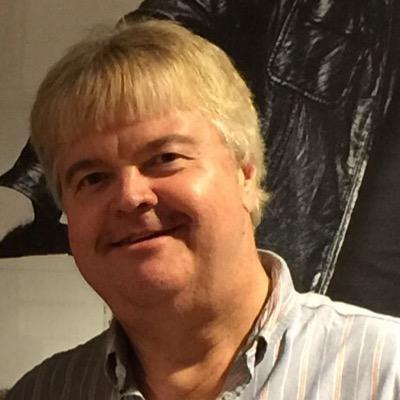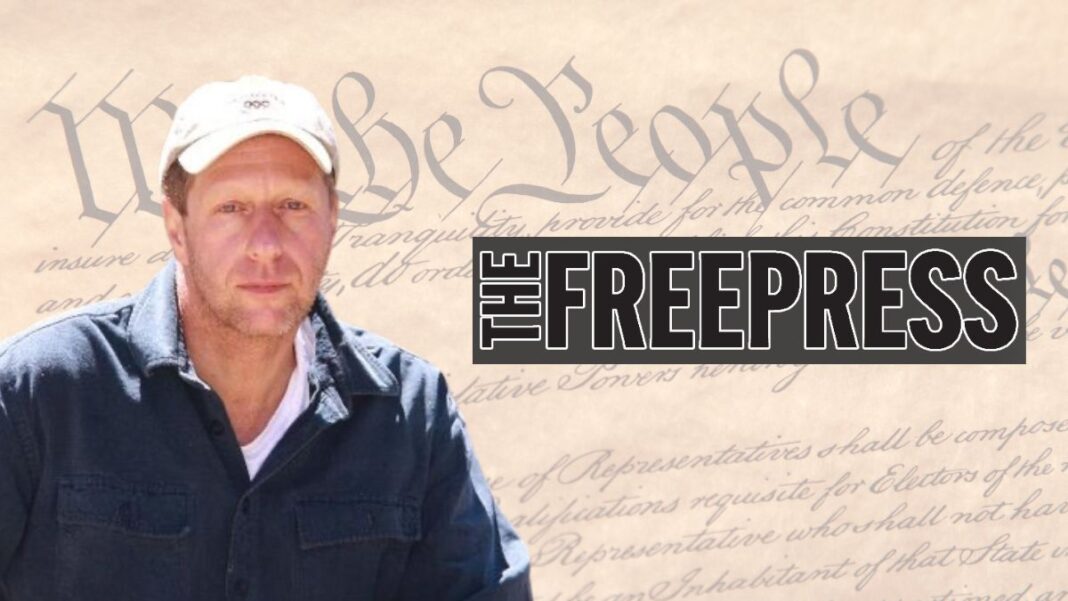Barrett Media produces daily content on the music, news, and sports media industries. To stay updated, sign up for our newsletters and get the latest information delivered straight to your inbox.
Tracy Johnson is the President/CEO of Tracy Johnson Media Group. He began his career at KNLV Radio in Central Nebraska at age 14.
Over the years, he has been a Music Director, Program Director, Consultant, Operations Manager, Market Brand Manager, and Director of Audience Engagement.
Johnson has won numerous awards, and his book “Morning Radio” is described as “The Bible of Personality Radio.”
Tracy Johnson Media Group website quotes Johnson: “My gift is the ability to identify talent and inspire great performances. I understand the importance and nuance of nurturing content creators like radio personalities, video streamers, and podcasters to find their unique voice and use it to their full potential.”
Johnson is this week’s featured consultant.
Jeff Lynn: How do you see the state of the radio industry today?
Tracy Johnson: Radio is at a crossroads and the industry is faced with critical decisions. The world has radically changed, and new entertainment choices have cut deeply into radio’s position. We cannot apply the same thinking and solutions to problems and challenges with new variables. This isn’t new. Radio has been challenged by technology and societal changes since Marconi, but this time, radio’s survival depends on making smart choices. It won’t happen by fine-tuning our music format, manipulating clocks, and gaming the rating systems. Radio must innovate with difference-making personalities that can attract and lead a passionate fan base.
JL: Along those lines, what do you see as the biggest challenges the industry is facing?
TJ: Three key things: First, we have to find new ways to monetize influence with listeners rather than allowing a flawed rating system cause stations to be hard to listen to for most of the audience. Loading a massive amount of poorly-produced 30 and 60-second commercials is a one-way track to irrelevance. Second, stations must stop selling against one another and promote radio’s remaining strengths. One of those strengths is older demographics, yet stations continue to obsess over beating one another up over 25-54-year-olds. Third, personality is the future, and stations are not a) developing or training talent, b) providing tools and resources so they can compete, and c) allowing the freedom to create meaningful engagement.
JL: What advice do you have for stations and talent to rise to the top in the competition for the ear with all the audio sources available?
TJ: There are three steps to becoming difference-making personalities on the radio. First, personalities must discover their “voice” and understand who they are on the air, a character based on their real-life personalities. Second, they need a reason to exist. I call it a programming wedge. It’s usually a feature that creates audience anticipation and expectation, similar to how Carpool Karaoke made it possible for James Corden to become famous. And the third step is becoming larger than life by turbo-charging content. That includes promotions and teasing, but also learning to apply the Three E’s of Entertainment: Exaggeration, Enhancement, and Embellishment. Personalities need to be big, bold, and loud to cut through in a crowded marketplace while staying within their personality lane.
JL: Why do you think radio stations consistently play it so safely and no longer take chances with things like new music or innovative programming and features?
TJ: Fear. Most broadcasters are punished more for poor ratings wobbles than rewarded for success. Tom Peters once said that winning management “Rewards massive failure and punishes mediocre success.” We wring our hands over what might go wrong, leading us to fail to commit to potentially winning ideas. We take a “wait and see how the ratings react before promoting it” approach. We need to take smart risks with commitment.
JL: How do you coach on-air talents to extend their brands through video and podcasting?
TJ: There are so many opportunities for innovative storytellers who can lead an audience, but most personalities are stuck on trying to expand their brand by doing a better radio show. The interesting thing is that they have the skills podcasters and video talent lack. They just need to apply it to a different medium. Some of my shows are doing podcasts and not just repurposing their on-air content. They’re starting YouTube and Twitch channels, showing the audience their show behind the scenes. Some are creating paywalled content and generating very impressive new revenue. There’s unlimited potential!
JL: When working with on-air talent, what tips do you give for ceasing a moment and making the show local?
TJ: There are two issues here. First, broadcasters think capturing the moment is “talking about the story” but that’s just reporting! Creativity starts with the topic but must be curated into entertainment only you can do. The other issue is the importance of being connected locally. Yes, it’s important, but it’s a tie-breaker. Being entertaining and engaging beats local every time. Having said that, being “local” is more than just making a “We’re live and local” claim. It is about reflecting the lifestyle and culture of the community. That doesn’t happen with promos, liner. cards, or making gratuitous statements. It has to be cleverly threaded through the fabric of the personality and station.
JL: How do you see AI impacting the industry, both good and bad?
TJ: AI is the single most important innovation since the introduction of the personal computer. Is it good or bad? It’s both, depending on how it is used. Learning to use and deploy AI is the most enlightening and exciting thing you will discover. It will help you become more efficient, creative, and successful. But if you don’t learn to use it properly, you’ll become a relic from the past. You won’t be made irrelevant by AI, but will become a victim of those who know how to use AI.
JL: How important is contesting, and how do you compete against huge national contests?
TJ: Contests are effective in manipulating ratings because they appeal to the type of listener who participates with rating services, so I understand both the value and why so many companies are using contesting. But they’re tactical tools that don’t build little to no brand equity. You have to constantly stimulate those participants with incentives to achieve the desired result. Those contests are usually not entertaining and fail to impress the 97% of listeners that don’t play. Having said that, national contesting is effective in moving the rating needle. I hear many locally owned stations trying to compete by claiming “local winners.” Guess what? That doesn’t work. Most of the audience isn’t playing, and those that do play (the contest/rating respondents) don’t care if it’s local or not. They’re simply motivated by the incentive. Dozens of research projects prove this point. If you want to compete with national contests, check out what the Independent Broadcasters Association is doing. For a small fee, you can participate in group contests even if you’re not a part of a large group.
JL: How can programmers balance the need for programming integrity with the need to get every revenue dollar in the door?
TJ: This is a chicken-or-egg thing. You can’t monetize a product without an audience for it. Yet revenue has declined to the point that managers are desperate for every dollar. One answer is to learn to tell our story better (and differently) beyond a rating discussion, then nurture more direct relationships with decision makers and business owners. It’s a compelling story if you tell it properly. A client’s morning show was so frustrated over the lack of sponsors for a key feature. One morning, he went on the air asking for business owners who would like to advertise on his show and gave his email address to contact him if they’d like to get their message out with an ad. He had more than 75 responses from local businesses and took it to the sales manager, who reviewed the list and said, “None of these people advertise on radio. They’re not on our account lists.” They did nothing with it. The morning host asked for permission to contact those businesses and sell ads. He was told “no” because we can’t have our talent competing with our sales team. Let that sink in.
JL: What was the best piece of career advice you ever received?
TJ: I had several mentors who helped me in many ways (Larry Brewer, Scott Campbell, Dick Chapin, and Ed Trimble), but the single best advice came from Alan Burns, who I worked for from 1989-1992. He had the greatest influence on my career, and one of the things he taught me was that for every problem you encounter, there are ten possible solutions. Two or three will be terrible ideas and can’t possibly work, no matter how much you try. A couple will be perfect solutions and can’t fail no matter how poorly it’s executed. That leaves five possibilities somewhere in the middle. Those ideas can work if you commit to it and rally the entire team around the concept. The point is to try and find the ideas that can’t fail, avoid the ones that can’t succeed, but regardless of the path you choose, get everyone working together toward the same goal. You can make it work.
Tracy Johnson is on Facebook here.
Connect via email here.

Jeff Lynn serves as Editor of Barrett Media’s Music Radio coverage. Prior to joining Barrett Media, Jeff spent time programming in Milwaukee, Omaha, Cleveland, Des Moines, and Madison for multiple radio groups, including iHeartMedia, Townsquare Media, NRG Media, and Entercom (now Audacy). He also worked as a Country Format Editor for All Access until the outlet shut down in August 2023.
To get in touch with Jeff by email, reach him at Jeff@BarrettMedia.com.





